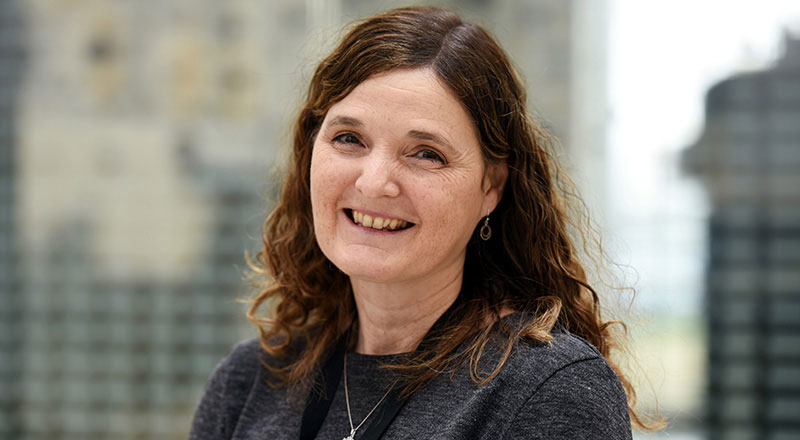Research project grant awarded to Teesside University team
A Teesside University research project which could help people with muscle wasting and weakening conditions is to receive a share of £1.3 million in grant funding from Muscular Dystrophy UK.

Professor Linda Popplewell, Professor of Genetic Medicine at Teesside University’s National Horizons Centre (NHC), is leading one of 11 new research projects across the UK which are receiving Muscular Dystrophy UK investment.
The research projects aim to improve diagnosis, monitor progression and test potential new treatments for muscle wasting and weakening conditions.
Professor Linda Popplewell has been granted a four-year PhD studentship to enable work to develop a new therapy to correct genes in people with Becker muscular dystrophy, with the onward potential to delay the progression of the condition and prevent early onset of heart complications.
Professor Popplewell said: “I have been fortunate to receive funding from Muscular Dystrophy UK previously for the development of gene therapies for various muscular dystrophies. The work they do for patients with muscle wasting and weakening condition, not just in supporting research, is phenomenal. They ensure that rare muscular dystrophies, including Becker muscular dystrophy (BMD), are not neglected.
“To explore the applicability of genome editing to BMD with this new PhD studentship from the charity is a privilege, and I am delighted to receive this grant on behalf of the NHC at Teesside University.”
The funding will enable international collaboration with Professor Alyson Fiorillo and Professor Christopher Heier, BMD experts from George Washington School of Medicine and Health Sciences, alongside the technological training of the next generation of BMD researcher.
Dr Marc Moore, a senior scientist at the NHC who is also leading this work, added: “This funding from Muscular Dystrophy UK presents such a welcome opportunity for the development of a gene therapy for Becker muscular dystrophy. With the wealth of facilities and expertise available at the NHC, we look forward to executing this potentially ground-breaking project.”
The charity’s new grants bring the total number of research projects funded by Muscular Dystrophy UK to 43. The research projects cover a range of different conditions including Becker muscular dystrophy, Charcot-Marie-Tooth disease, Duchenne muscular dystrophy, mitochondrial myopathy, myasthenia gravis, myotonic dystrophy type 1 and for the first time ADSSL1 myopathy and X-linked spinal muscular atrophy (XL-SMA).
Kate Adcock, Director of Research and Innovation at Muscular Dystrophy UK said: “Here at Muscular Dystrophy UK we’re delighted to fund ground-breaking research to better understand the different muscle wasting and weakening conditions and lead us to new effective treatments.
“Researchers have made incredible advances that would have been unthinkable just 10 years ago and we’re proud to be able to support these new efforts in Teesside.”
As well as funding research, the charity also shares expert advice and support to live well now, works with the NHS towards universal access to specialist healthcare and campaigns for people’s rights, better understanding, accessibility, and access to treatments.
 Teesside University hosts groundbreaking hydrogen conference
Teesside University hosts groundbreaking hydrogen conference University supporting development of new £1m concrete plant
University supporting development of new £1m concrete plant Academic’s artwork on display at Middlesbrough station
Academic’s artwork on display at Middlesbrough station